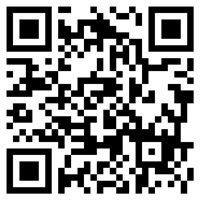425 OLD NEWMAN RD. STE 402 FRISCO, TX 75036
(469) 460-8809
The Art and Science of Medication Management for Depression
Introduction
Globally, millions of people suffer from a complex and multifaceted mental health condition called depression. It is often necessary to use a comprehensive approach in treating these conditions which comprises both pharmacological and non-pharmacological interventions. One of the most vital components is medication management. This involves careful selection, monitoring as well as adjusting antidepressant medications. The goal is to maximize therapeutic benefits while minimizing adverse effects. At Bukhari Psychiatric Services located in Frisco Texas, we specialize in personalized medication management for mental health ensuring each patient gets the best treatment specific to their unique needs.
The Complexity of Depression and Psychiatric Medication
Various factors contribute to the complexity of depression, including genetics, biology, psychology, and environment. Consequently, it requires an individualized approach to treatment especially when it comes to pharmacotherapy. The cornerstone of pharmacological treatment for depression is antidepressants which come in different classes with distinct mechanisms of action and side effects. These include Selective Serotonin Reuptake Inhibitors (SSRIs), Serotonin-Norepinephrine Reuptake Inhibitors (SNRIs), Tricyclic Antidepressants (TCAs), and atypical antidepressants. Fluoxetine and sertraline for example are SSRIs that are normally used as a first line of treatment due to their good side effect profile and wide efficacy.
Antipsychotic Medications in Depression Treatment
Antipsychotic medications also play a significant role in treating mental disorders such as bipolar disorder and major depression. These medications can help manage symptoms and are often used in combination with antidepressants. However, they come with varying side effects, making it crucial to monitor patients and adjust medications as needed to minimize unpleasant effects.
SNRIs like venlafaxine and duloxetine present an alternative, especially in the case of patients who are not responding adequately to SSRIs. TCAs, for instance, amitriptyline, have a high advantage but remain limited to treatment-resistant cases because of their associated more serious side effects. Atypical antidepressants such as bupropion and mirtazapine represent other alternatives, particularly among individuals who show adverse effects such as sexual dysfunction or weight gain due to other medicines. Additionally, medications for attention deficit hyperactivity disorder (ADHD) include both stimulant and non-stimulant drugs, which require careful monitoring for potential side effects, especially in children and adolescents.
Key Principles of Medication Management for Mental Health Conditions
Personalized Treatment Plans
It's important to consider certain factors when managing depression effectively with medication. The first one is personalized treatment which can involve the unique genetic constitution of each patient, their medical background, symptom display, and the way they responded to previous treatments. An effective treatment plan can aid in choosing the best drug and dosage for everyone involved. For example, pharmacogenomic testing could help determine a constituent’s capacity to break down antidepressants thus giving pertinent information on which drugs will work better for them or are more acceptable. (Hiebert et al., 2014). Healthcare research plays a crucial role in developing effective medication management strategies by providing valuable insights and evidence-based practices.
Continuous Monitoring and Adjustment
Another fundamental concept is continuous observation and modification. Regular re-assessment visits are necessary for monitoring how well drugs perform. When health providers meet with patients, they can use standardized assessment instruments like the Hamilton Depression Rating Scale (HAM-D) or Patient Health Questionnaire (PHQ-9) to measure symptom intensity and track changes. The monitoring supports timely changes in the medication, for example by changing doses or switching it to another class of drugs if the first therapy does not work or the adverse effects are too severe. (Thase, 2006).
Patient Education and Empowerment
When it comes to managing medication, patient education is another critical factor. Adherence and outcome results are enhanced when patients are educated on their ailments, treatment alternatives, and recommended drugs. Those individuals who comprehend why it is necessary to take medicines as prescribed or know what common side effects might occur will be more likely to stick to their prescribed regimens. The other aspects of education include changes in lifestyle and talking about the role of other therapeutic approaches like psychotherapy in managing depression. Patient empowerment is achieved through a comprehensive approach that allows them to play an active part in their journey towards recovery (Srinivasan et al., 2011).
The Importance of Collaborative Care
Lastly, collaborative care is essential for effective medication management. This approach involves a multidisciplinary team of healthcare providers, including psychiatrists, primary care physicians, and psychotherapists, working together to address all aspects of a patient’s health. Collaborative care ensures that the medication regimen aligns with other treatments and that all potential drug interactions and comorbid conditions are considered. For example, a patient with both depression and chronic pain might benefit from a coordinated treatment plan that addresses both conditions, potentially using an SNRI known to alleviate both mood and pain symptoms. (Katon et al., 2006).
Challenges in Antidepressant Medications Management
Despite being an important aspect of the management of depression, mental health medications can present difficulties. One of the main difficulties is the difference in how different people respond to anti-depressants. Some patients may react to medication in a way that varies from the rest, and this makes treatment difficult. For example, some quickly metabolize drugs, and others do it slowly leading to different concentrations at play and therefore varying effects and side effects. Anti-anxiety medications, such as benzodiazepines and buspirone, also play a crucial role in treating mental disorders, but they come with their own set of challenges. Because of such variations finding specific drugs and doses for each patient turns out to be a daunting task that requires time-consuming experimentation processes. (Cipriani et al., 2018).
Drug Interactions and Cross-Signatures
A major obstacle is to handle drug cross-signatures. Antidepressant drugs can distinguish themselves from other drugs a patient may be using, hence lowering their functional effectiveness or raising the possibility of unwanted effects. For example, SSRIs can inhibit liver enzymes responsible for processing other drugs, leading to higher blood concentrations of these substances and greater danger of toxicity. This raises serious concerns in patients receiving several treatment lines because they have other pathologies to manage, such as heart disease or diabetes. Therefore, healthcare providers need to examine all patients’ drugs thoroughly and change their treatment plans accordingly to minimize adverse interactions between them (Baldwin, 2016).
Addressing Stigma and Improving Adherence
In addition, the problems of stigma and adherence present major obstacles. Patients may be deterred from seeking treatment or following their medication regimen due to the stigma attached to mental illness and antidepressant use. Certain patients are reluctant to use antidepressants out of shame or fear of being criticized by others. To increase adherence and treatment results, these anxieties must be addressed through education for patients and encouraging counseling services. Non-adherence may also result from complications such as complex medication regimens, side effects, or ignorance regarding the merits of the therapy. There are various strategies for improving compliance including simplifying the dosage schedule, employing reminder systems, and involving family members in the treatment process (Cramer et al., 2008). Consulting a healthcare provider is essential to treat mental disorders effectively and to monitor side effects.
Managing Antidepressant Side Effects
Managing side effects is another critical challenge in medication management. Antidepressants can cause various side effects, starting from simple problems like nausea and insomnia to severe issues like weight gain and inability to perform sexually. These side effects can significantly affect a patient’s quality of life and adherence to medication. Hence, healthcare providers should monitor for adverse effects and provide suitable interventions such as adjusting the dosage and switching over medications or supplements that treat specific side effects. For instance, bupropion may be an option for patients experiencing sexual dysfunction with SSRIs because it has fewer instances of these symptoms. (Fava & Davidson, 1996).
Cost and Accessibility Issues
Lastly, issues concerning the costs and availability can impede efficient medication management. Medications may prove too expensive for some patients especially if they lack proper insurance. Furthermore, healthcare provider access may also be limited in some areas. This can sometimes make it hard for patients to get routine follow-up treatment. However, telemedicine and digital health technologies could solve these problems by providing more convenient and affordable alternatives. (Zhou et al., 2016).
Integrating Medication Management to Treat Mental Disorders with TMS Therapy and Other Treatments
An extensive treatment method is usually more effective in handling depression. Although medication therapy is an integral part of depression treatment, it can work very well when combined with Transcranial Magnetic Stimulation (TMS) therapy to complement the effects. TMS therapy is a non-invasive medical procedure that employs magnetic fields for stimulating nerve cells in the brain and can be highly useful for patients who do not respond solely to medications.
TMS (Transcranial Magnetic Stimulation) therapy has become an important choice for people who do not respond to traditional treatments for depression or have severe side effects from antidepressants. This type of therapy is usually easy on the body and can be paired up with any kind of medication to improve results further on. For example, if a patient is taking an antidepressant but hasn’t seen their condition completely go away yet, they may want to try adding TMS therapy into their regimen since it targets certain parts of the brain responsible for controlling moods. Studies show that when TMS is used in addition to pharmacotherapy, it can significantly reduce depressive symptoms, creating a combined effect that maximizes total treatment efficacy. (George et al., 2010).
TMS Therapy: A Complementary Approach
Combining TMS therapy with medication management requires an individualized treatment plan that is precise. At Bukhari Psychiatric Services, the patient’s unique needs are evaluated which includes, their past use of antidepressants, severity of symptoms, and comorbid conditions to find out the best combination of treatments. For some patients, TMS may serve as a major treatment modality, especially in those who have had intolerable side effects from medications. For others, it may be utilized as an adjuvant to enhance the effects of their current medication regimen. This personalized approach guarantees that patients receive the most effective management while at the same time minimizing potential risks (O'Reardon et al., 2007).
Psychotherapy and lifestyle adjustments should be included alongside TMS and medication management in a comprehensive treatment plan for depression. For instance, cognitive-behavioral therapy (CBT) can assist patients in developing coping mechanisms, countering harmful thoughts, and improving control over emotions. Psychotherapy can improve results by dealing with psychological and behavioral issues of depression, yet it is mainly performed in conjunction with medication or TMS therapy. To treat depression safely, lifestyle changes like regular exercise, a balanced diet, and adequate sleep must also be part of the overall plan (Cuijpers et al., 2016).
Comprehensive Care for Depression at Bukhari Psychiatric Services
Management of medication in an effective way is a cornerstone of successful treatment for the disorder of depression. Besides depression, anxiety disorders and bipolar disorder are other examples of conditions that also require careful medication management. We at Bukhari Psychiatric Services provide a personalized, comprehensive approach involving medication selection, patient education, and other healthcare practitioners’ collaboration as well as continuous monitoring. We aim to maximize treatment outcomes and improve the quality of life of depressed individuals by responding to their individual needs while addressing medication management challenges.
Local to Frisco Texas? Our team offers expert help if you or someone close to you requires assistance with managing depression medications. Give us a call or complete our online contact form today!
References
- Baldwin, D. S. (2016). Antidepressants and their interactions: A review. International Journal of Clinical Psychiatry, 32(1), 27-34.
- Cipriani, A., et al. (2018). Comparative efficacy and tolerability of antidepressants for major depressive disorder in children and adolescents: A network meta-analysis. The Lancet Psychiatry, 5(5), 420-428.
- Cramer, J. A., et al. (2008). Medication adherence and persistence: Terminology and definitions. Value in Health, 11(1), 44-49.
- Cuijpers, P., et al. (2016). The efficacy of psychotherapies and pharmacotherapies for adult psychiatric disorders: A systematic overview of meta-analyses. World Psychiatry, 15(3), 255-262.
- Fava, M. (2003). Diagnosis and definition of treatment-resistant depression. Biological Psychiatry, 53(8), 649-659.
- Fava, M., & Davidson, J. R. (1996). Definition and epidemiology of treatment-resistant depression. Psychiatric Clinics of North America, 19(3), 179-200.
- George, M. S., et al. (2010). Daily left prefrontal transcranial magnetic stimulation therapy for major depressive disorder: A sham-controlled randomized trial. Archives of General Psychiatry, 67(5), 507-516.
- Hiebert, N. M., et al. (2014). Pharmacogenetics in the treatment of depression. Neuropsychiatric Disease and Treatment, 10, 2051-2062.
- Katon, W., et al. (2006). Collaborative care for patients with depression and chronic illnesses. New England Journal of Medicine, 355(1), 17-30.
- O'Reardon, J. P., et al. (2007). Efficacy and safety of transcranial magnetic stimulation in the acute treatment of major depression: A multisite randomized controlled trial. Biological Psychiatry, 62(11), 1208-1216.
- Srinivasan, S., et al. (2011). Patient education and its impact on medication adherence: A review. Current Medical Research and Opinion, 27(3), 663-671.
- Thase, M. E. (2006). Efficacy of tricyclic antidepressants in the treatment of major depressive disorder: A meta-analysis. Journal of Clinical Psychiatry, 67(4), 217-227.
- Zhou, X., et al. (2016). The role of mobile health technologies in depression management: A review of recent literature. Journal of Medical Internet Research, 18(8), e227.
Share Article

OUR RELATED ARTICLES
Click here to leave us a review or scan the QR Code shown:

CONTACT
425 OLD NEWMAN RD. STE 402 FRISCO, TX 75036
- Mon - Fri
- -
- Sat - Sun
- Closed
(817) 898-7402
info@bukharipsychiatricservices.com
MAIN LINKS
Click here to leave us a review or scan the QR Code below:

Click here to leave us a review or scan the QR Code above:
CONTACT
425 OLD NEWMAN RD. STE 402 FRISCO, TX 75036
(469) 460-8809
- Mon - Fri
- -
- Sat - Sun
- Closed
(817) 898-7402
MAIN SERVICES
Copyright Bukhari Psychiatric Services. All right reserved.







